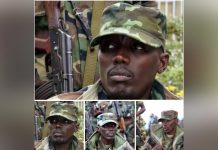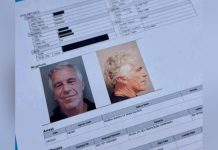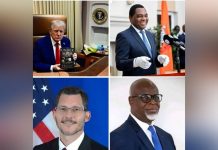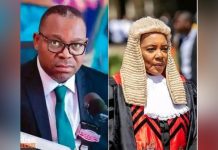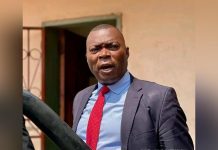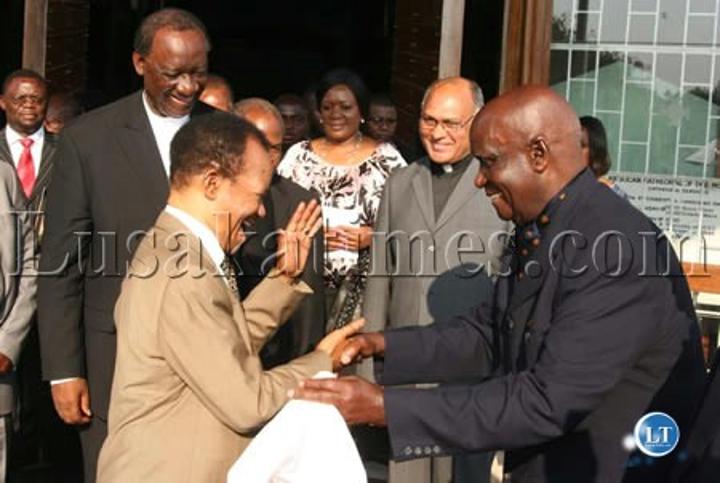
Africa-Press – Zambia. Last week the country lost its first president and internationally revered statesman Kenneth Kaunda and also commutated the 10 anniversary of his successor Frederick Chiluba’s death. The two men shaped Zambia’s destiny in ways that need to be remembered and respectfully reflected upon, for a nation that does not appreciate its history is bound to be haunted and ultimately doomed by it.
As the former’s political career was in its twilight the latter’s star was rising as he ascended on a trajectory that would see him at the helm of the nation and the focal point of Zambian political social and economic life for a decade and beyond.
Arguably, the end of Dr. Kaunda’s reign can be traced to the night of June 30 1990 when junior army officers among them, but not led by, Mwamba Luchembe attempted to overthrow the government in an ill-fated military coup. This was the catalyst that set off a series of events that effectively sent Kaunda into retirement.
What followed less than a month later was the convening of a conference at Lusaka’s Garden house Hotel where like-minded Zambians discussed the reintroduction of Multiparty politics delt the death knell 17 years earlier through the enactment of article 4 of the constitution which banned all parties with the exception of the ubiquitous omnipotent flame brandishing UNIP after a plebiscite on the issue held in 1972.
At the end of the July 25-26 Garden house meeting, a pressure group was constituted to champion the return to multi partyism under the apt banner Movement for Multi-Party Democracy (MMD) initially led by Arthur Wina, (Husband to current vice President Inonge ) with several prominent members of Zambian society in tow, among them Dr. Chiluba, Lawyer Levy Mwanawasa. Vernon J Mwaanga, Sikota Wina, Simon Vukas, Elias Chipimo Snr Guy Scott to mention but a few.
The pressure they mounted on Kaunda forced him to appoint a commission of Inquiry chaired by Air Commander General Enos Haimbe (father of UPND Lusaka central Candidate Mulambo) that went around the country and got the people’s preferences which were overwhelmingly a return to Multi partyism.
Reluctantly but displaying what ultimately turned out to be misplaced confidence in his popularity, Kaunda repealed article 4 on December 3, 1990 allowing the formation of other political parties. The MMD which had existed as a party in everything but name, quickly formalized its transformation and its convention in February 1991 elected Chiluba president and candidate to face Kaunda in elections slated for October 31, 1991. The MMD emerged triumphant after annihilating Kaunda and UNIP with an embarrassing 80% of the presidential vote and 75% of parliamentary seats. It was the end of the Era of Safari suits, young pioneers the women’s league as the UNIP Comrades graciously accepted defeat and made a retreat from which they have never returned.
It was the dawn of the new culture epitomized by the smart double-breasted suit bright tie and matching breast kerchief. It was also the beginning of a painful but critical economic reform program that saw the closure of industries the loss of jobs without severance packages and a massive privatization program inspired by the IMF and the World bank whose young inexperienced Harvard and Yale graduates used our economy as a Guinea Pig for largely untested theories.
Chiluba’s was a government cemented by the overwhelming desire to remove Kaunda and once that was done and the hard work of governing a country in distress became a reality. Cracks, not well concealed from inception began to show, the cement’s questionable durability could no longer hold the stress.
In 1993, Chiluba fired his most powerful and influential ministers. Humprey Mulemba, Emmanuel Kasonde, Arthur Wina and Guy Scott were fired by remote, as the announcement was made while Chiluba was attended heads of State meeting in Asia.
As he strengthened his grip on power Chiluba weakened the Unions, the same unions that had propelled him to national prominence and as a consequence the presidency. He, quite literary, used the ladder and took it with him never to be used as a stepping stone again.
In mid-1994 his Vice President Levy Mwanawasa resigned after Chiluba rescinded Mwanawasa’s decision to fire health Minister Michael Sata for corruption when he had acted as President in Chiluba’s absence, In other countries that might have caused a political crisis but the master dribbler, that Chiluba believed himself to be, quickly appointed general Godfrey Miyanda, then MMD national Secretary and minister without portfolio. to replace Mwanawasa and it was life as usual.
In 1996 Chiluba was again the MMD candidate having defeated Mwanawasa’s challenge at an MMD convention with in excess of 2,800 votes to Mwanawasa’s paltry 63. UNIP boycotted the election after the constitution had been changed to bar Kaunda from standing so Chiluba faced Dean Mungomba of MMD splinter Zambia Democratic Congress winning with over 60% of the vote.
Chiluba’s last five years are membered mostly for his futile attempt to ensure they were not the last. An attempted coup in 1997 has been largely forgotten though he used it to detain political enemies real and perceived. He also introduced a law that made motor vehicle theft non-bailable successfully incarcerating his rival for the first lady’s affections on trumped-up charges and incarceration that led to the death of the Don Juan, Archie Mactribouy. Another casualty of Chiluba’s jails was Zadeco leader Mungomba who contracted TB while in prison and later died of the dehumanizing ailment. After failing in his attempt to cling to power Chiluba ordained Mwanawasa as his successor and at elections, in December 2001 Mwanawasa narrowly edged UPND’s Anderson MMazoka by 1 percentage point (28% to Mazoka’s 27%) to become Zambia’s third President.
In the end, how do we as students of politics, governance, and history judge our two fallen leaders? Dr. Kaunda’s enduring legacy would be his free education which allowed generations to rise from abject poverty to the educated elite that was to run the country in the future.
He also came up with massive infrastructure projects, nationalized the economy Zambianised key jobs and helped liberate Southern Africa. But Kaunda’s regime was also repressive and saw many detentions and sudden unexplained deaths. Our society was a semi police state and for every four adults, it was believed one would be an operative of the powerful Office of the President security apparatus. The economy was run aground and shortages of almost everything from toilet paper to cooking oil were prevalent. He also left an unhealthy treasury with astronomical debt, crumbling infrastructure, and declining social services in health education and social protection.
Chiluba inherited this and set about the Herculean task of restructuring the economy on other people’s terms bringing about much suffering and misery. By and large, he tolerated the free press, and fun dental freedoms of assembly, speech, movement were largely guaranteed. He also set up the environment that allowed for debt forgiveness and cancellation that was achieved in the Mwanawa era.
All in the two played their parts in two very different ways at two very different eras. As to whether they were equal to the tasks they had chosen to take up by seeking election to the presidency remains subject of debate in many a drinking place, particularly this sad but momentous weekend.


